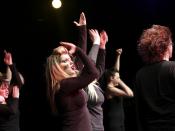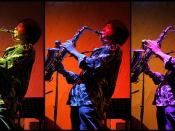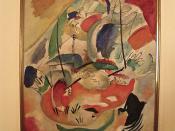Improvisation in music means composing something new which has not been notated, something quite literally "un-foreseen". Any amateur musician in the 18th century could improvise, but as methodologies for music teaching developed in the 19th century, reading and playing complicated scores became the focus of the teacher's attention, to the extent of crowding out analysis of how music was constructed and how a student might put together a piece on his or her own. Reinforced by continuous practice, piano students became adept at pressing down the right keys at the right time, while the talented student could be further instructed about putting feeling and "expression" into the rehearsed product later.
Many students who have studied an instrument for ten years might easily become dissociated from it as something unusable in later life, and he would often remark "Oh, I used to play the piano..... Or flute..." The instrument had not become a part of his emotional being, because it was taught primarily as a mechanical device to be operated, not a living process in which to invest thoughts and feelings.
On the other hand, technical training cannot be discounted, no one plays the piano by sheer intuition and nothing is done without practice. If one's mind is furnished with musical thinking early on, with solid training on an instrument, there will be a good base for making one's own music later. It has been found that students with half a dozen years of piano or violin can usually be taught to improvise in a month of sustained experimentation, but music students academically trained in harmony without "hands-on" proficiency on an instrument cannot usually improvise at all.
Then there is the matter of a person's musical sense and musical inclinations. Many who have never studied music can pick out a...


